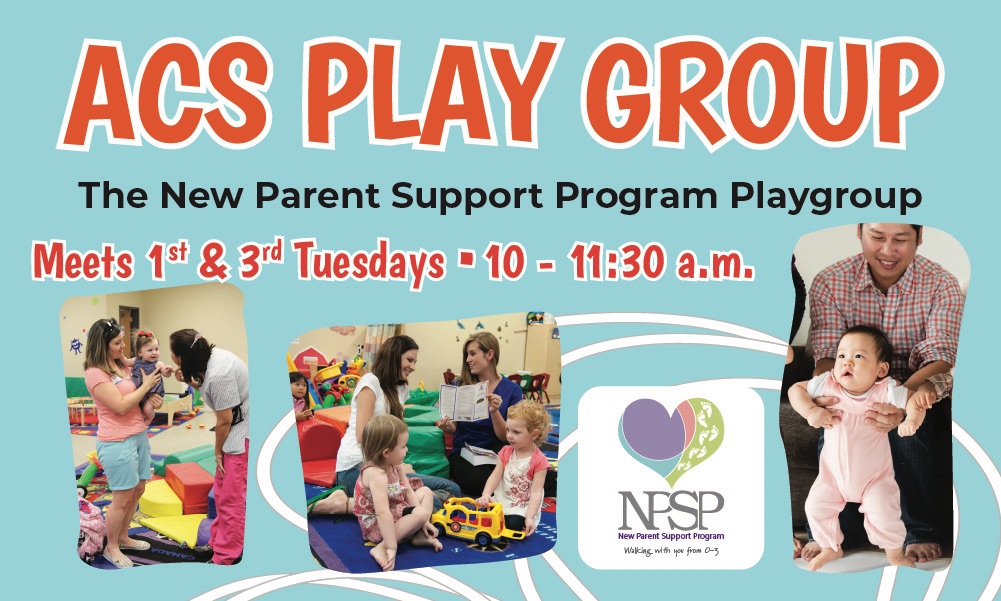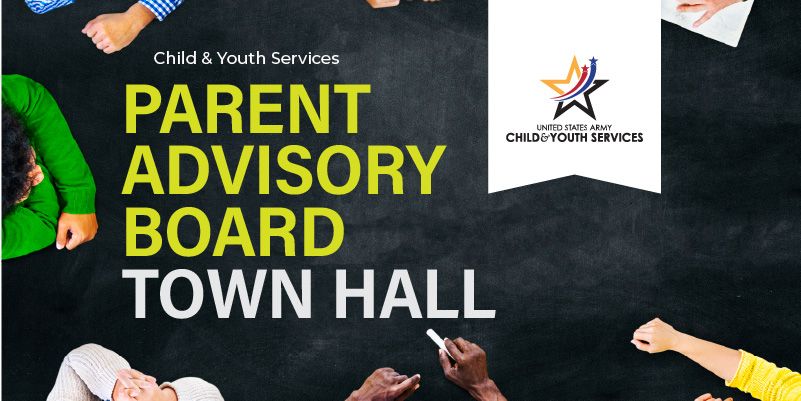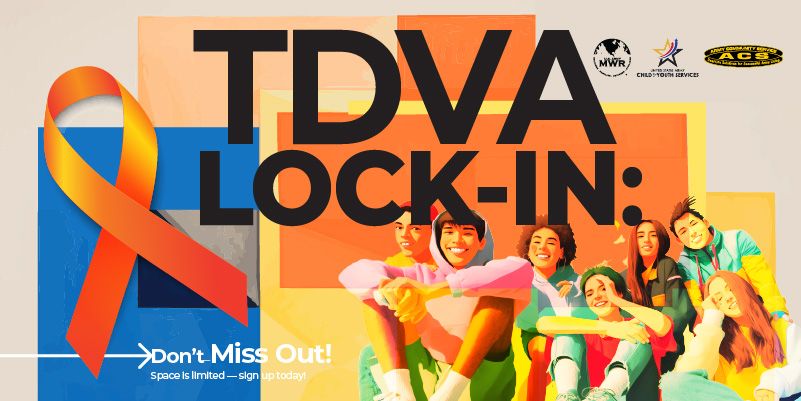- Loan Closet (includes dishes, glasses, pots and pans, irons and ironing boards, coffee pots, toasters, etc) for 30 day loan.
- Newcomer's Orientation (includes briefings on all available services at Camp Zama and a free "Taste of Japan" lunch) and tour of Camp Zama and Sagamihara Family Housing Area.
- Welcome Packets and sponsorship information about Camp Zama and the PCS process to Japan can be found using the website: https://www.usarj.army.mil/ and following the link under "Welcome to Japan".
- Sponsorship training classes specific to Japan are available. Please contact our Relocation Readiness Program Manager for more information.
- Complete the E-Sponsorship Training.
- EFMP (Exceptional Family Member Program)
-
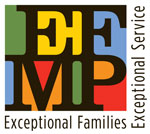
The Exceptional Family Member Program (EFMP) provides comprehensive support to Family members with special needs. EFMP takes an all-inclusive approach to coordinate military and civilian community, educational, medical, housing, and personnel services to help Soldiers and their Families with special needs.
An Exceptional Family Member is A Family member with any physical, emotional, developmental, or intellectual disorder that requires special treatment, therapy, education, training, or counseling, and meets the eligibility criteria.
Soldiers* with Exceptional Family Members are required to register for EFMP and keep enrollment information current. This way, Family needs will be considered during the OCONUS assignments process.
If you’re eligible for EFMP services, Family members must be screened and enrolled when they accompany authorized Soldiers on OCONUS assignments. Screenings include medical records review for all Family members and developmental screening for all children aged 72 months and younger.
For more information about EFMP, contact the EFMP point of contact through your nearest Army medical treatment facility.
*Who must enroll in the program?
(1) Active Army
(2) U.S. Army Reserve (USAR) Soldiers in the Active Guard Reserve (AGR) Program
(3) Army National Guard (ARNG) AGR personnel serving under authority of 10 USC and 32 USC. Department of the Army civilian employees do not enroll in the program.
You must identify dependent children with special education and medically related service needs and Family members with medical needs each time they process for an assignment to a location outside the United States where Family member travel is authorized at Government expense.
-
SNAP (Special Needs Accommodation Process)
What is Special Needs Accommodation Process (SNAP)?
The Special Needs Accommodation Process (SNAP) is a multidisciplinary team established to ensure the most appropriate placement of children with special needs. The team meets to review any new applications that indicate any possible special needs to review concerns regarding children already placed in Child & Youth Services (CYS) programs.
Who may be referred to the SNAP?
Any child who has a special need who is eligible to use CYS. Categories of eligibility include: children of contractors, civilians, employees, active duty military, and military retirees.
Children who have:- asthma
- attention deficit disorder
- diabetes
- autism
- epilepsy
- down's syndrome
- seizure disorders
- physically challenged
- learning disabilities
- sensory impairment (hearing/vision)
- developmental replays
- speech/language impairment
Who are the SNAP members?- Exceptional Family Member Program Manager
- Army Public Health Nurse
- Child & Youth Training and Curriculum Specialists
- Child & Youth Services Coordinator
- Child & Youth Services Program Directors or Trainers
- Appropriate Experts
- Parents/Sponsors/Guardian
May I be present when my child is reviewed?
Yes! It is mandatory that a least one parent or legal guardian attend. According to the EFMP regulation, AF 608-75, 27 Jan 2017, children will not be able to start in any CYS programs until the review is completed. You will be informed of the date, time, and location of the SNAP meeting. In order to assist the team, you may be asked to bring specific information such as:
Medical documentation detailing developmental delays, illnesses, the severity of allergies (exposure, reactions, and treatments), prescription medications, and your expectations of services to be provided by the CYS staff as well as Educational and Developmental Intervention Program Information regarding developmental evaluations, services provided etc.
Normally, a SNAP review will take between 1/2 hour to 45 minutes. A SNAP review needs to be held only once a year unless there are changes in the child's special needs, i.e. medications, treatment, diagnosis, etc.
If I am not happy with my child's placement in childcare programs, may I request another meeting?
Certainly! The team reconvenes if a child's needs change, if the parents desire a different program placement, or if a child seems to be experiencing difficulties in the current placement. Parents may request a SNAP at any time. Contact the Exceptional Family Member Program Manager.
Are providers trained to care for my child's need?
All CYSS providers are trained and experienced to meet the needs of children with special needs. If your child presents a situation new to the staff, they will receive specialized training before your child is entrusted to their care.
When does SNAP meet?
Twice a month. Call for dates and locations.
Camp Zama Points of Contact
Army Community Service
DSN: 315-263-4357 (Social Services Support)
MEDDAC-Japan
DSN: 315-263-4121 (Enrollment/Updates/Status of EFMP)
-
- Family Advocacy Program
-
The Family Advocacy Program (FAP) is the Army's program designed with the mission of education to prevent spouse and child abuse, to encourage the reporting of all instances of abuse, and to treat all family members affected by or involved in abuse so that those families can be restored to a healthy state. FAP is a command-directed program under the authority of AR 608-18.
The Family Advocacy Program works with individuals and families to strengthen family relationships using education and prevention tactics. The program is dedicated to enhancing individual coping skills and alleviating the underlying causes of stress associated with family violence. FAP provides prevention education service to restore and maintain a healthy environment, while respecting customer confidentiality. Although FAP coordinates the legal, law enforcement, social services and medical aspects of family violence on each installation, program responsibilities are primarily divided at the installation between Army Community Service (ACS) and Medical Treatment Facility (MTF) staff.
Prevention / Education Workshops / Classes: FAP provides a wide range of classes designed to enhance interpersonal skills and prevent family violence. Life Skills classes are designed to help attendees develop skills that will benefit them in their daily lives and to prevent instances of family violence. All classes are free. Attendees may self-enroll or be referred to classes by the chain of command or health professional. These are offered on a regular basis and classes can be tailored for a specific topic or audience. General categories of classes include:
- Command FAP Education
- Annual FAP Troop Training to all units and soldiers at Camp Zama
- Professional Staff FAP Training for agencies working with children.
- Domestic Violence Prevention
- Child and Teen Safety
- Child Abuse Prevention and Intervention
- Couples Communication
- Stress Reduction
- Parenting Classes
- Anger Management
- Blended Families
- Single Parenting
- Parenting of Teens
- Conflict Resolution
- Teen Dating Violence: The Hidden Hurt
- Marriage Enrichment: What's Love Got to Do With It?
Deployment & Separation Domestic Violence Intervention:
- Post deployment Homecoming Reunion Workshops
- When Someone You Know is Hurting: Child Abuse in our Military Community
- When Someone You Know is Hurting: Spouse Abuse in our Military Community
- Blue Ribbon Campaign during April: Child Abuse Prevention Month
- Domestic Violence Awareness Month Workshops in October including: Marriage and Money, How to Have a Fair Fight, Managing Stress in Your Marriage, Why and How to Conduct Family Meetings
Family Life Education & Library: Free pamphlets, books, literature and videos are available for loan on topics such as:
- Couples Communication
- Parenting
- Preventing and reporting child and spouse abuse
- Problem-solving and conflict resolution
- Anger and stress management
- Child Safety Education
- Internet Safety
Support Groups:FAP can assist with the following support groups:
Single Parent Support Group: This group meets monthly to provide support services, information, and referral for members rearing his or her child as a single parent.
Referral Services:These are a few of the referral services offered through FAP:
- Safety Plan Assessment
- Shelter Services
- Transportation
- Transitional Compensation
- Telephone follow-up
- Information and referral
- Domestic Violence Safety Plan
Victim Advocate Program (VAP): Victim Advocacy Services program provides comprehensive assistance and support to victims of domestic abuse and sexual assault, including crisis intervention, safety planning, and assistance in securing medical treatment for injuries, information on legal right and proceedings, and referral to military and civilian shelters and other resources available to victims. Victim Advocacy services are available 24 hours a day, 7 days a week to Soldiers and Family members.
If you are a victim of domestic violence, you are NOT alone.Millions of people just like you are dealing with violence at home. Although usually well hidden, domestic violence is very common and affects people from all walks of life. No matter what you may have been led to think, nothing you say or do causes your partner to behave violently toward you, and it is impossible for you to prevent their assaults by being the perfect spouse. This kind of behavior is against the law. Domestic violence gets worse with time and sometimes result in death.
You have Choices. You need to know that you have choices--you do not have to live in an environment that degrades and/or physically afflicts you. You are not alone!
Reporting Options:
Restricted Reporting allows victim to confidentially receive medical treatment, advocacy services, and counseling without initiating an official investigation or Command involvement. To maintain a restricted report only the following personnel can be notified: Victim Advocate, Healthcare personnel, Behavioral Health, and Chaplains.
Unrestricted Reporting allows the victim to receive medical treatment, advocacy, counseling services. An official investigation will be initiated and the Command notified.
Victim Advocate: DSN 315-263-4783
Domestic Abuse Hotline: 080-5968-3188
Military Police: DSN 315-263-3002
Behavioral Health Services: DSN 315-263-4610
Chaplain: DSN 315-263-4898Transitional Compensation: The Transitional Compensation (TC) Program is a program for abused Family members of military personnel. Temporary payments are authorized to Families in which the active duty Soldier has been court-martialed (with a qualifying sentence) or is being administratively separated for a Family member abuse offense. The TC Program offers benefits and entitlements for 12-36 months to eligible Family members. During this period, beneficiaries are provided temporary financial compensation and are eligible to receive medical care, including behavioral health services, as TRICARE beneficiaries. Recipients will also have commissary and exchange privileges during this period. Contact your local Victim Advocate, Family Advocacy Program Manager, or Victim Witness Liaison for assistance with completing an application for Transitional Compensation.
Family Advocacy Program Manager: DSN 315-263-4782
Victim / Witness Liaison: DSN 315-262-4041Camp Zama Resources
OFFICE PHONE NUMBER(S) HOURS OF OPERATION RESTRICTED, UNRESTRICTED Domestic Abuse Victim Advocate,
Victim Advocate263-4783
080-5968-31888 a.m. - 5 p.m.
Non-Duty HoursBoth
Behavioral Health Service
263-4610
8 a.m. - 4 p.m.
Non-Duty HoursBoth
Crawford Sams Medical Clinic
263-4127 on-post:
046-407-4127 off-post8 a.m. - 4 p.m.
Both
Chaplain
263-4898
090-8050-89328 a.m. - 5 p.m.
Non-Duty HoursBoth
MP Desk
263-3002 on-post:
046-407-3002 off-post24/7
Unrestricted
Sexual Assault Hotline
090-9395-8909
24/7
Both
FAP Documents in PDF Format
Emergency Placement Care Program (EPC): The EPC Program similar to foster care is designed to provide children with a temporary nurturing home in the event wherein their natural family cannot care for them. The EPC family provides temporary home for a child until permanent arrangements can be made. The EPC program constantly seeks special people who care enough to help families in the community by providing a short-term stable, secure and safe environment for a child. Financial Reimbursement is available. FAP provides EPC Parent Certification Training as needed. For more info, please call 263-4782.
Respite Child Care: When families involved in the Family Advocacy Program need a break from stressful child-rearing situations, FAP can provide funds to provide limited short-term child care in certain situations.
Links for the Prevention of Abuse
- Child Abuse Prevention Network
- Child Help USA
- CAPA - Child Abuse Prevention Association
- www.missingkids.org
Great family-related links
- Sgt. Mom's Place
- World Village
- Parents Place
- Family Disney
- Kids' Money Page
- American Academy of Pediatrics
- Dr. Greene's House
- Hip Mama
- Fathering Magazine
- Zero to Three
- Adopting.com
- Making Lemonade - For single parents
- Girl Power
Links just for Kids
Links for Teens and Parents of Teens
New Parent Support Program (NPSP) Childsafe
NPSP is a voluntary program designed to help new parents with parenting issues. The target population is expectant parents, parents with newborns and families with children to 6 years of age. The NPSP Coordinator's role is that of being a support system, sounding board, and special information resource person.
The NPSP Coordinator will educate you about what to expect during your child's growth and developmental stages, address common concerns and offer parenting tips. The program is one of the many services within the Family Advocacy Program. For additional information, please call DSN 315-263-4357.
Some aspects of NPSP program include:
Play Groups
This parent-child interactive playgroup is focused on developing your growing child's social skills by providing unstructured playtime, and it offers a chance to meet other parents in similar stages of parenthood. All children under the age of 6 are welcome.
Eligibility is limited to Military ID and DOD Civilian ID card holders. It is held on 1st and 3rd Tuesday from 10-11:30 a.m. at the SHA Library on SHA.
Baby Bundles
Bundles of resources and materials for 1st time expecting parents are available at ACS.
Classes and Workshops: NPSP has a full listing of convenient parenting classes that are available by calling DSN 315-263-4357.
- Potty Training
- Managing the Aggressive Toddler
- Breastfeeding Tips
- Child Summer Safety
- NPSP Information Brief
- Building Your Child’s Self-Esteem
- Shaking, Hitting, Spanking: What to Do Instead?
- Baby Love Seminar
- Positive Guidance
Information and Referral Services
Referrals are offered to military agencies (e.g. EDIS, WICO or CYS)
Resource Library
There is a check-out resource library with children and parent related tools, books, toys and videos"
Parenting Links
- Positive Parenting Online Magazine
- The Administration for Children and Families
- Kids Health.org
- Parenting Press
- The National Parent Information Network
Pregnancy & Childbirth Links
- Survivor Outreach Services (SOS)
-
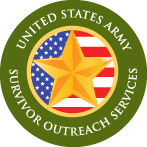
SOS is an Army-wide program designed to provide dedicated and comprehensive support to Survivors of Active Duty, Reserve, Army National Guard and Retirees. Survivor Outreach Services demonstrates the Army’s commitment to Families by providing support and standardized services to Active, Reserve and Army National Guard Families. Many times there are unresolved issues or questions that may surface months or years after the loss. The Army is dedicated to fulfilling the Total Army Strong by providing support to Families for as long as they desire.
Family Member Resources & Helpful Links
- Full Survivor Outreach Services Brochure
- myarmyonesource.com
- taps.org
- aerhq.org
- moaa.org
- hrc.army.mil
- www.vba.va.gov/survivors
- goldstarwives.org
- goldstarmoms.com
- soldiersangels.org
- patriotguard.org
- vmwusa.org
- military.com
- nmfa.org
- armywell-being.org
- myarmybenefits.us.army.mil
- Arlington National Cemetery, Funeral Information
- How to Request Military Service Records or Prove Military Service
Resources For Children:
GriefNet.org (email support Groups )
cen-dra@griefnet.org
Kids-to-kids (under 12)
K2k-teens (ages 13-18)Benefits:
Department of Veteran Affairs
Dependency Indemnity Compensation (DIC) - DIC is a monthly benefit paid to eligible survivors of a military service member who died while on active duty, active duty for training, or inactive duty training.
Survivors' and Dependents'Educational Assistance (DEA) - Dependents' Educational Assistance provides education and training opportunities to eligible dependents of certain veterans. The program offers up to 45 months of education benefits. These benefits may be used for degree and certificate programs, apprenticeship, and on-the-job training. If you are a spouse, you may take a correspondence course. Remedial, deficiency, and refresher courses may be approved under certain circumstances.
Home Loan Guaranty - The unmarried surviving spouse of a veteran who died on active duty or as the result of a service-connected disability is eligible for the home loan benefit.
CHAMPVA - The Civilian Health and Medical Program of the Department of Veterans Affairs (CHAMPVA) is a comprehensive health care program in which the VA shares the cost of covered health care services and supplies with eligible beneficiaries.
- Military & Family Life Counselor
-
The MFLC (Military & Family Life Counselor) is here to offer support to servicemen and women and their families through the tough times of military life, including deployment, mobilization, reintegration and the resulting issues that affect service members and their families.
Services are provided to individuals, couples, families, and groups. Services are free and confidential, however, MFLCs are mandated reporters of child abuse, domestic abuse and duty-to-warn situations.
What issues does the MFLC address?
MFLCs provide short-term, situational, problem-solving counseling for many issues that military families face including:
Life Skills
- Anger Management
- Conflict Resolution
- Communication Skills
- Couple Counseling
- Parenting
- Relationship Issues
- Decision Making Skills
- Productivity at Work
Military Lifestyle
- Deployment Stress
- Reintegration: Warrior to Citizen
- Relocation Adjustment
- Separation
- Coping Skills
- Building Resiliency
- Homesickness
- Grief and Loss
- Emotional Well-Being
How can I set up an appointment?
An appointment can be set by calling 263-3638, by email, or by calling Army Community Service at 263-4357.
- Information & Referral Program
-
Camp Zama's ACS Information & Referral Program Specialist provides information on local, public, private and voluntary agencies on Camp Zama, military installations throughout Japan, as well as the local Japanese economy.
Information & Referral also conducts’ initial customer assessments of a general and personal nature, provides confidential client intake services, crisis intervention, and referral and follow-up assistance. Information & Referral provides a vital link between people who need help and the organizations which provide that help.
- Detailed Local Resource Files
- Translations services to assist you with bills, appliance directions, etc.
- Maps of Military Installations and places of interest in Japan (Road and Train)
- Informational Flyers, Activity Guides, Magazines and Newspapers
- Community Liaison Programs
- Referral and Follow-up Services
Family Member Resources & Helpful Links
Military Installations Throughout Japan
- Torii Station, Okinawa, Japan
- Naval Air Facility, Atsugi, Japan
- U.S. Fleet Activities, Yokosuka, Japan
- Yokota Air Base, Japan
- New Sanno Hotel, Tokyo, Japan
- Marine Corps Base, Camp Fuji, Japan
- U.S. Fleet Activities, Sasebo, Japan
- Misawa Air Base, Japan
- Camp Foster Marine base Okinawa, Japan
- Kadena Air Base, Japan
Guides to Japan
- Army Volunteer Corps
-
Army Volunteer Corps
Volunteers make a meaningful difference in the lives of Soldiers and their Families every day. Army Volunteer Corps (AVC) is designed to help you find local volunteering opportunities with organizations that benefit the Army community.
The AVC has redefined volunteering within the Army. We embrace existing volunteer programs, unite all volunteers who support Soldiers and Families, including the Active Force, National Guard and Army Reserve, and formalize the Army’s commitment to volunteerism.
No matter where people volunteer in the Army community, they usually want to contribute to Soldiers and their Family members. We recognize this common goal and want to help you find the right opportunity for you.
Volunteering helps your community and helps you as well. When you participate with AVC, you’ll:
- Gain a sense of satisfaction/achievement by meeting challenges
- Learn about the Army, our sister services, and the community
- Acquire new skills and/or expand old ones
- Obtain work experience
- Build new friendships and become a cohesive part of the community
Contact your local Army Volunteer Coordinator within your Army Community Service Center to register and learn about volunteer opportunities across the Army.
ACS - a great place to work, an even better place to volunteer!!
Throughout history, volunteers have played an integral role in the life of Soldiers and their Families. In the early years of our country, Volunteers mended uniforms, cared for the sick and wounded, and comforted Families of fallen Soldiers. Today our Volunteers are found throughout the military community. Soldiers, Civilians, Retirees, Spouses and Youth provide aid to schools and hospitals, donate their time on sports fields, and volunteer in many other organizations and offices. Through their dedicated service, Volunteers transform military installations into communities. The program is now recognized as the Army Volunteer Corps.
There are many Volunteer opportunities at Camp Zama, Japan. To become a volunteer, contact the ACS Army Volunteer Corps Coordinator (AVCC), 263-HELP (4357) to discuss your options. You may also get started by registering and joining online at https://www.armyfamilywebportal.com. As a Volunteer, you will receive an in-depth orientation covering child care, rights and responsibilities, experience progression, awards and much more. Volunteers must register in the Volunteer Management Information System (VMIS). Free training is available.
All volunteers are recognized at the annual Volunteer Recognition Ceremony in April. This is a large event to show our appreciation and thanks for all that Volunteers do throughout the year. For more information on this event, contact the AVCC at 263-4357.
Family Member Resources & Helpful Links
https://www.armyfamilywebportal.com
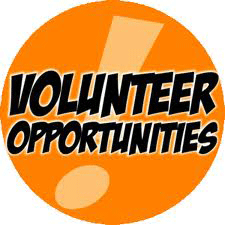 To become a volunteer, you must first visit the ACS Army Volunteer Corps Coordinator (AVCC), 263-8087 to discuss your options and also to complete the required volunteer packet. Next you will receive an in-depth orientation covering child care, rights and responsibilities, experience progression, awards and much more. This orientation provides you the tools to be an effective volunteer and will also ensure that you have a pleasant experience as you provide volunteer service to the community.
To become a volunteer, you must first visit the ACS Army Volunteer Corps Coordinator (AVCC), 263-8087 to discuss your options and also to complete the required volunteer packet. Next you will receive an in-depth orientation covering child care, rights and responsibilities, experience progression, awards and much more. This orientation provides you the tools to be an effective volunteer and will also ensure that you have a pleasant experience as you provide volunteer service to the community.More information is also available from Military One Source.
- Employment Readiness
-
Employment Readiness Program (ERP)
The Employment Readiness Program (ERP) offers resources to help with your career plan and job search. Whether you’re a military spouse or Family member who just moved to a new installation, Retiree, or DoD civilian looking for new opportunities, or active duty Military, active Reserve, National Guard member, or Wounded Warrior, we’re here to help.
Our services include:
- Up-to-date information on local, national, and international employment opportunities, job market trends and education, and volunteer resources
- Classes and seminars on self-assessment and career exploration, resume writing, interviewing techniques, dressing for success and networking
- Résumé critiques
- Career counseling and individual career assessments
- Job fairs and other hiring events
- Teen/youth employment information
- Computers with Internet access, scanner and fax machine available
- Resource library
Contact your Employment Readiness Program manager (ERPM) for more information.
HELPFUL LINKS:
- Financial Readiness
-
The Financial Readiness Program is your resource for information on money matters. We can help you better understand financial topics like:
- Military pay
- Checking account/debit card management
- Financial responsibility
- Credit reporting
- Debt elimination strategies
- Saving
- Investing
- Budgeting
- Financial goal setting
- Thrift Savings Plan
- Home Buying and Selling Resources
If you are in need of emergency financial assistance:
Army Emergency Relief (AER): A private, nonprofit organization established to help Soldiers and their Families in emergency financial situations due to no fault of their own. AER provides financial assistance through 0% interest loans, and in certain cases, grants. Make AER your first choice for financial assistance. AER FAQ

For more information about how the Financial Readiness Program can help you, contact your nearest Army Community Service Center.
Other helpful financial readiness links include:
- Thrift Savings Plan: A Federal Government-sponsored long-term retirement savings and investment plan, available for both Federal civilian employees and members of the uniformed services.
- Money Matters: A mobile-optimized resource with calculators for savings, debt reduction and other reference material in one location.
- Home Buying and Selling:The National Military Family Association has compiled a great list of financial resources to help Military Families.
- Army OneSource: Network of the services and delivery of support to Soldiers and their Families.
- Credit Report: Get a free copy of your credit report every 12 months from each credit reporting company.
- Office of Servicemember Affairs: A component of the Consumer Financial Protection Bureau helps to educate and empower military members, veterans, and their Families in the consumer financial marketplace.
- Saveandinvest.org: A project of the FINRA Investor Education Foundation, a free, unbiased resource dedicated to your financial health. Helps you make informed decisions through easy-to-use tools and resources, and arms you with the information you need to protect yourself from investment fraud.
- Better Business Bureau Military Line: Provides specialized education and support services, which meets the needs of active and retired military personnel and their Families.
- U.S. Savings Bonds: A shorter-term savings option with competitive interest rates and backed by the full faith and credit of the United States.
- New Parent Support Program
-
The New Parent Support Program (NPSP) promotes healthy Families through a variety of services including home visits, support groups, and parenting classes. We help Soldiers and Families learn to cope with stress, isolation, post-deployment reunions, and the everyday demands of parenthood. Army Families who are expecting a child or who have children up to age three can participate in all of our services confidentially and free of charge.
Each installation has developed unique New Parent Support Program services that include:
- Expectant Parent Workshop: Helps get your pregnancy off to a good start with valuable information about pregnancy and postpartum health, basic infant care, infant massage, parenting skills, safety, discipline, stress management, deployment issues, and community resources.
- Play groups: Scheduled regularly at installations, they help children learn through play in a supportive atmosphere that benefits parents as well. Activities include story time, crafts, and music.
- Military Homefront: A free weekly parenting email with support, tips and advice, updates about your baby’s developmental milestones, and other great information curated just for you.
Contact your installation Army Community Service (ACS) Family Advocacy Program for more information. You can also call Military OneSource for more information and referrals (CONUS: +1 800-342-9647; OCONUS: 00-800-3429-6477; To call collect with operator assistance OCONUS: +1 (484)530-5908).
- Relocation Readiness Program
-
Moving is challenging! However, Camp Zama’s Relocation Readiness Program provides assistance in the following areas of relocation:
Newcomer’s Orientation is a must attend event. Every 1st and 3rd Thursdays of the Month. The morning session, speakers from major organization of Camp Zama inform Newcomers where they are located, how to contact them and their area of specialty that is offered.
Top of the noon hour begins with no cost lunch to the consumer, “Taste of Japan,” it’s an introduction to the Japanese cuisine. Very delicious! Newcomer’s Orientation will recommence after lunch with MEDDAC programs. Followed by the Base Tour.
The Base Tour concludes the Newcomer’s Orientation. Knowing the location of key organizations at the beginning of your tour helps mitigate frustration, reduces stress and save time. Every Soldier and DA Civilian are required to attend the Newcomer’s Orientation. Family members are encouraged to attend.
Loan Closet, while you wait for your HHGs to arrive, we have dish kits, coffee makers, microwave ovens, and much more at your request for 30 to 60 days.
Japan Specific Sponsorship Training classes are specific to Japan. Sponsorship training is an excellent opportunity to navigate an inbound Soldier or DA Civilian’s PCS move. Steering a Soldier or DA Civilian from the snares of financial traps that breaks the bank and/or stressors that sends them over edge is part of being a great sponsor. Going the extra distance creates a win-win for the inbound Soldier, DA Civilian and their family; it is the hallmark of being a great sponsor.
Start learning Japanese online with Mango. Available from Army Libraries at: http://mwrlibrary.armybiznet.com. Learn Japanese language and culture with Mango Languages' easy-to-digest units, which introduce you to Japanese vocabulary, pronunciation, grammar, and culture. The interactive words & phrases, local insights, and memory-building exercises help you understand, apply, and practice what you learn.
*Already have an Army MWR Library account, but forgot your PIN? Use the email your register with to reset your PIN.
Please contact the Relocation Readiness Program Manager for more information!
- Victim Advocacy Program
-
The Victim Advocacy Program (VAP) provides emergency and follow-up support services to adult victims of domestic abuse. Advocacy services are available to Service members, their current or former spouses, an individual with whom the Service member shares a child, and significant others of Service members who live together. Our services are available twenty-four hours a day, seven days a week.
Our trained professionals are here for crisis response, information on reporting options, medical treatment options, law enforcement’s response, emergency services, safety planning, obtaining military and civilian protective orders, and accompaniment to medical forensic exams and medical appointments, as well as accompaniment to court for orders of protection hearings and trails. Advocates work closely with their civilian counterparts and ensure a personal and smooth transition for victims who do not qualify for ongoing advocacy services within the military community.
If you need help or want more information, contact the Victim Advocacy Program Manager at your local Army Community Service Center.
Reporting Options
The Army is fully committed to ensuring victims of domestic abuse are protected; treated with dignity and respect; and provided support, advocacy and care. The Army strongly supports effective command awareness and prevention programs, and holding offenders accountable.
There are two types of reporting options: Restricted Reporting and Unrestricted Reporting. Personnel should report all suspected cases of domestic abuse promptly, which quickly activates victim services and accountability actions. However, we understand things might not always work that way. Victims might need medical attention or victim services without command or a law enforcement response. Therefore, the Army has implemented a Restricted Reporting Option for victims to confidentially disclose allegations of abuse and receive needed medical treatment and services.
Restricted Reporting
Allows someone who meets VAP criteria and who is experiencing violence in his/her relationship to confidentially disclose the abuse to a Victim Advocate, a Victim Advocate Supervisor, or a Healthcare Provider. When an individual chooses a restricted report, law enforcement is not involved and there is no investigation of the abuse. In addition, the Soldier’s Command is not notified of the abuse and is unable to offer assistance and protection.
The restricted reporting option allows an individual to receive medical treatment, advocacy services and clinical and pastoral counseling. This option allows one to receive needed services, control the release of his/her personal information, and time to consider his/her options.
Under this reporting option, the offender is not held accountable and the abuse may continue. If an assessment reveals a high risk for future injury, a restricted report may not be granted.
Unrestricted Reporting
Victims of domestic abuse who want to pursue an official investigation of an incident should report the abuse to law enforcement, or the alleged offender’s Commander. The unrestricted reporting option provides a victim with the widest array of services available including but not limited to command involvement, law enforcement involvement, medical treatment, advocacy services, and counseling services.
Not all incidents of domestic abuse are the same, and each person who experiences domestic abuse handles the situation differently.
Command Response
Commanders play an integral part in ensuring the safety, health, and well being of our Army Families. Commanders who learn of an incident of domestic abuse are required to notify law enforcement.
Victim’s Rights
- The right to be treated with fairness and with respect for your dignity and privacy.
- The right to be reasonably protected from the accused offender.
- The right to be notified of court proceedings.
- The right to present at all public court proceedings related to the offense, unless the court determines that your testimony would be materially affected if you as the victim heard other testimony at trial.
- The right to confer with the attorney for the government in the case; the right to available restitution; the right to information about the conviction, sentencing, imprisonment, and release of the offender.
Safety Planning
A violent relationship puts you and your children at risk for injury and even death. Developing a safety plan tailored to meet the needs of your family will enable you get out of a potentially dangerous situation. If your children are old enough, mature enough, or even responsible enough to assist you during a violent or potentially violent episode of domestic abuse, you may consider including them in your plan to keep everyone safe. A good safety plan considers which steps to take if you choose to stay in the relationship or if you choose to leave.
Here are some tips during the explosive phase of domestic abuse:
- Move to a room with easy access to an exit. Don't go to the kitchen, bathroom or near possible weapons.
- Know the quickest route out of your home. Practice escaping that way.
- Know the quickest route out of your workplace. Practice escaping that way. Domestic Violence does not just occur in your home.
- Pack a bag and have it ready. Keep it hidden but make it easy to grab quickly.
- Tell your neighbors about your abuse and ask them to call the police when they hear a disturbance.
- Have a code word to use with your kids, family and friends. They will know to call the police and get you help.
- Know where you are going to go, if you ever have to leave.
- Use your instincts.
- You have the right to protect yourself and your children.
Develop Safety Plan: Download below
Safety Plan (English)Protection Orders
Military Protection Orders (MPO)
Unit Commanders may issue a Military Protective Order (MPO) to ensure the safety of service members, family members, and other individuals from the threat of domestic violence. An MPO is a written lawful order issued by a commander that orders a Soldier to avoid contact with his or her spouse or children. The commander should provide a written copy of the order within 24 hours of its issuance to the protected person, the Military Police and civilian law enforcement. An individual should report violations of the MPO to law enforcement.Civilian Protection Orders (CPO)
A Civilian Order of Protection is an order signed by a Judge that directs an individual to stop abusing, stalking, harassing and/or committing acts of sexual violence against an individual. An individual may file a CPO against current or former spouse, someone that an individual shares a child in common, an individual with whom you have shared a residence with, someone related to you by blood or marriage or someone with whom you have dated or had intimate relations.National Resources
- United States Department of Justice Office on Violence Against Women
- National Center on Domestic and Sexual Violence
- Stalking Resource Center
- Statewide directory for laws, courts, emergency shelters, orders of protection
- Battered Women's Justice Project
- The Family Violence Prevention Fund
- Women's Justice Center– Also is Spanish
- Mind, Body, Spirit Empowered - Materials translated into many languages
- Marriage and Equality – Materials translated into many languages
- Mobilization, Deployment, and Support Stability Operations
-
Mobilization, Deployment, and Support Stability Operations
The Mobilization, Deployment, and Support Stability Operations (MDSSO) helps support community readiness during deployments and emergencies. We help make sure installation programs align with unit deployment cycles, provide pre- and post-deployment support, and help unit Commanders with their Family Readiness plans and deployment support services for Service Members and their Families. We’re responsible for operating an Emergency Family Assistance Center in the case of an all-hazards event, and supporting Service Members and Families during Non-Combatant Evacuation Operations (NEO) and Repatriation. We also act as a case manager for all requests for assistance through the Army Disaster Personnel Accountability and Assessment System (ADPAAS).
Some of our resources include:
- Pre- and Post-Deployment Support: Help prepare Soldiers and Families for Deployments and Reintegration by providing trainings and resources throughout the Deployment Cycle in a variety of settings.
- Soldier & Family Readiness Group (SFRG): Designed to make sure Families have information you need and develop a military support group while your Soldier is deployed. Virtual Soldier & Family Readiness Group (vSFRG): also provide secure environments in which the commander can communicate directly with Soldiers and Families 24 hours a day no matter where you are.
SFRG Fund-raiser application for the USAG Japan area is here:
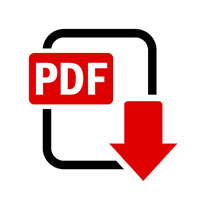 . Fill out 1a to 2c and e-mail DFMWR POCs (click here!) at a minimum 10 working days before the fundraising event day.
. Fill out 1a to 2c and e-mail DFMWR POCs (click here!) at a minimum 10 working days before the fundraising event day.- Emergency Family Assistance: Your link to continuous support and assistance as well as authoritative and accurate information in a sensitive, timely, and effective manner.
- Army Disaster Personnel Accountability and Assessment System (ADPAAS):Ensures all Army personnel and their dependents are accounted for during emergency situations.
- NEO/Repatriation: We help the State Department help those who have been displaced after national emergencies and disasters.
For more information on Mobilization, Deployment, and Support Stability Operations support in your community, contact your local Army Community Service office and ask for the Mobilization and Deployment program manager or specialist.
Other helpful links:
- Operation READY: “READY” stands for “Resources for Educating About Deployment and You.” It’s a training and information resource developed from lessons learned in the Persian Gulf War and used in Operation Iraqi Freedom (OIF)/Operation Enduring Freedom (OEF). The training covers learning about the types of military separation, planning and preparing personal documents, and completing family financial arrangements.
- Comprehensive Soldier and Family Fitness (CSF2): Provides hands-on training and self-development tools so that members of the Army Family are better able to cope with adversity, perform better in stressful situations, and thrive in life.
- Taking Care of Business: This video shares information that helps deploying Soldiers make necessary arrangements to ensure that loved ones will be taken care of if the worst happens. It explains which forms and documents to complete before deploying to ensure final wishes are observed.
- PDHealth.mil: A post-deployment resource to help ensure the highest-quality healthcare for those who make sacrifices in the world’s most hazardous workplaces.
- Emergency Hotline & Important Phone Numbers
-
Emergency Services (24/7): 911 or 046-407-2911
National Suicide Prevention Lifeline (24/7): 1-800-273-8255 or 263-8255
Domestic Violence Hotline (24/7): 080-5968-3188
Child abuse: 263-3002 or 046-407-3002
Sexual assault hotline (24/7): 090-9395-8909
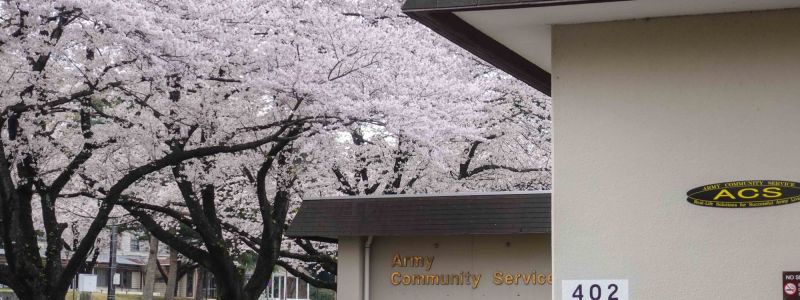
From Family readiness to financial health—and much more— Army Community Services (ACS) delivers programs tailored to your needs. We help maintain community readiness and resiliency through a wide range of educational opportunities, special events, individualized counseling services, and other offerings.
We help Soldiers from their first assignments all the way to separation or retirement, as well as Families, veterans, wounded warriors, survivors, and retirees. ACS supports the entire Army community.
Learn more about what ACS offers at your installation!
ACS values your privacy and security. Learn more about ACS customers' rights and responsibilities.
* Not all programs are available at all garrisons.
 The ACS staff and volunteers are available to help make your transition to Japan as problem free as possible. Upon your arrival at Camp Zama, ACS is available to serve you with the following orientation services:
The ACS staff and volunteers are available to help make your transition to Japan as problem free as possible. Upon your arrival at Camp Zama, ACS is available to serve you with the following orientation services:
In addition, we also provide services for: Sponsorship and Relocation information, Money Management seminars, Budget Counseling, Army Emergency Relief assistance, Parenting Classes, Exceptional Family Member Program Support Group, Play Morning, Stress and Anger Management workshops, Family Member Employment Program, short term counseling, Survivor Outreach Services.
ACS invites you to join our vital organization of volunteers. Our community needs the special talents you have to offer. We are located in Building 402 (near the Main Exchange and the Community Club). Plan to visit us soon.
